Generative AI creates content just like humans. It can write, design, and more. This is different from normal AI, which only recognizes patterns.
Generative AI learns from vast amounts of data. It then makes new things that have the same style. Deep neural networks help machines learn and create highly realistic outputs.
Conversational AI models can capture how different styles are. They make content that could be from a human.
In this blog, we will look at 21 creative ways companies use generative AI. It helps with tasks like coding, app making, content writing, and marketing. Generative AI also assists with graphics, videos, entertainment, performance reviews, and data analysis.
We will see how generative AI benefits businesses. It unleashes creativity, saves time, and cuts costs. Generative AI also allows customization at a large scale. It finds patterns in data and provides valuable insights.
So, without delay, let us begin with understanding generative AI.
Understanding Generative AI
Generative AI is an advanced technology that uses machine learning algorithms to enable computers to create original and unique content.
It goes beyond traditional AI, allowing machines to produce creative outputs like photos, music, and even text, which you can not differentiate from human-created content.
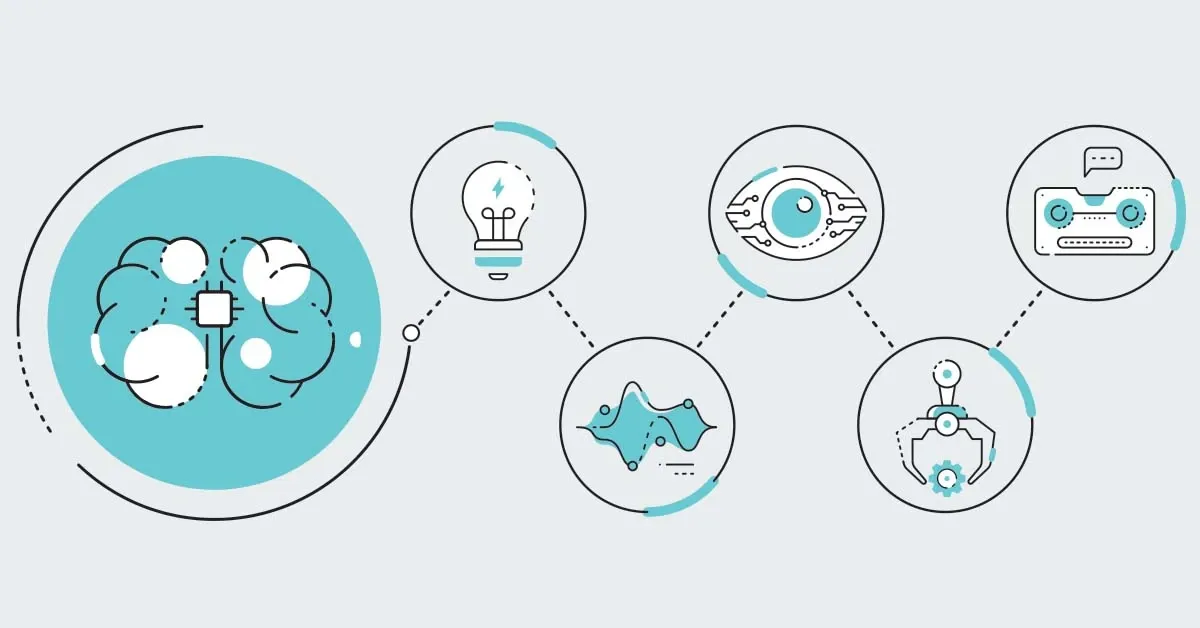
How does it Differ from Traditional AI?
While traditional AI focuses on tasks involving pattern recognition and decision-making based on existing data, generative AI generates new and unique content.
Traditional AI may assist in categorizing images or analyzing data, but generative AI can create original images or compose new music based on learned patterns.
How it Enables Machines to Produce Creative Content?
- Generative AI trains AI systems using vast data to learn patterns, styles, and structures.
- The systems generate unique content that looks at the absorbed patterns and style.
- Deep neural networks within generative AI facilitate machines to learn and create highly realistic and creative content.
- Conversational AI models can capture the intricacies and nuances of different styles to create content similar to human-generated work.
Now that we understand generative AI, we will go over the generative AI use cases.
21 Generative AI Use Cases
From code to content, AI streamlines processes to boost productivity. Applications include software development, AI Image creation, marketing, customer support, and more.
Generative models analyze data and automate repetitive tasks. Learn how AI adapts to enhance operations and drive innovation.
Here are some generative AI use cases for businesses:
1. Code Generation, Documentation, and QA
Generative AI tools are used to assist software developers and programmers in writing code, generating bug fixes, and creating various types of documentation.
This improves software quality assurance and helps democratize tech accessibility.
Generative AI tools can also increase efficiency and reduce human error by automating certain aspects of the software development process, allowing developers to focus on more high-level tasks and innovation.
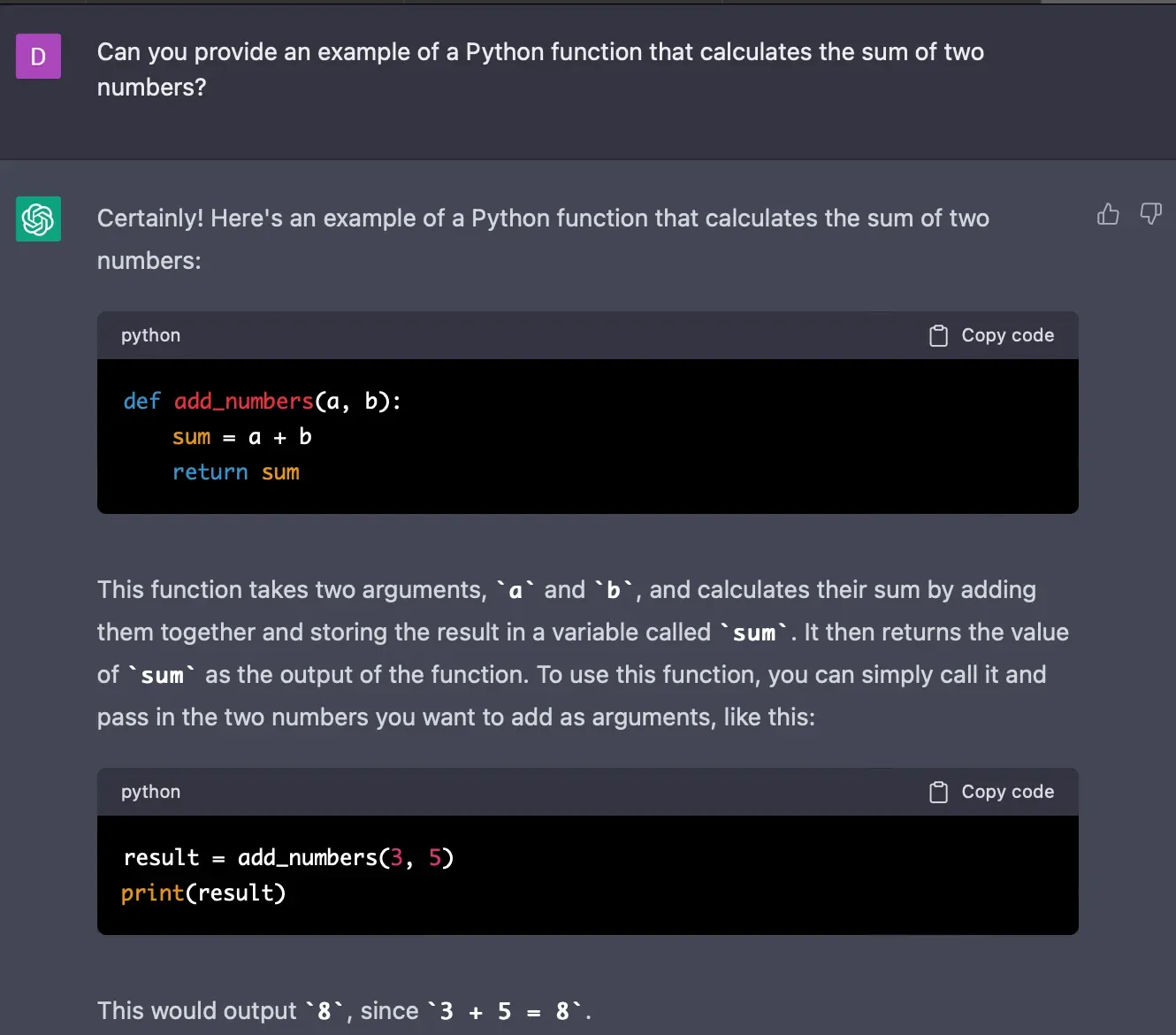
2. Product and App Development
Generative AI codes and develops various applications, including mobile apps and product documentation.
It is also being applied to projects like semiconductor chip development and design, enhancing the efficiency and speed of development processes.
3. Blog and Social Media Content Writing
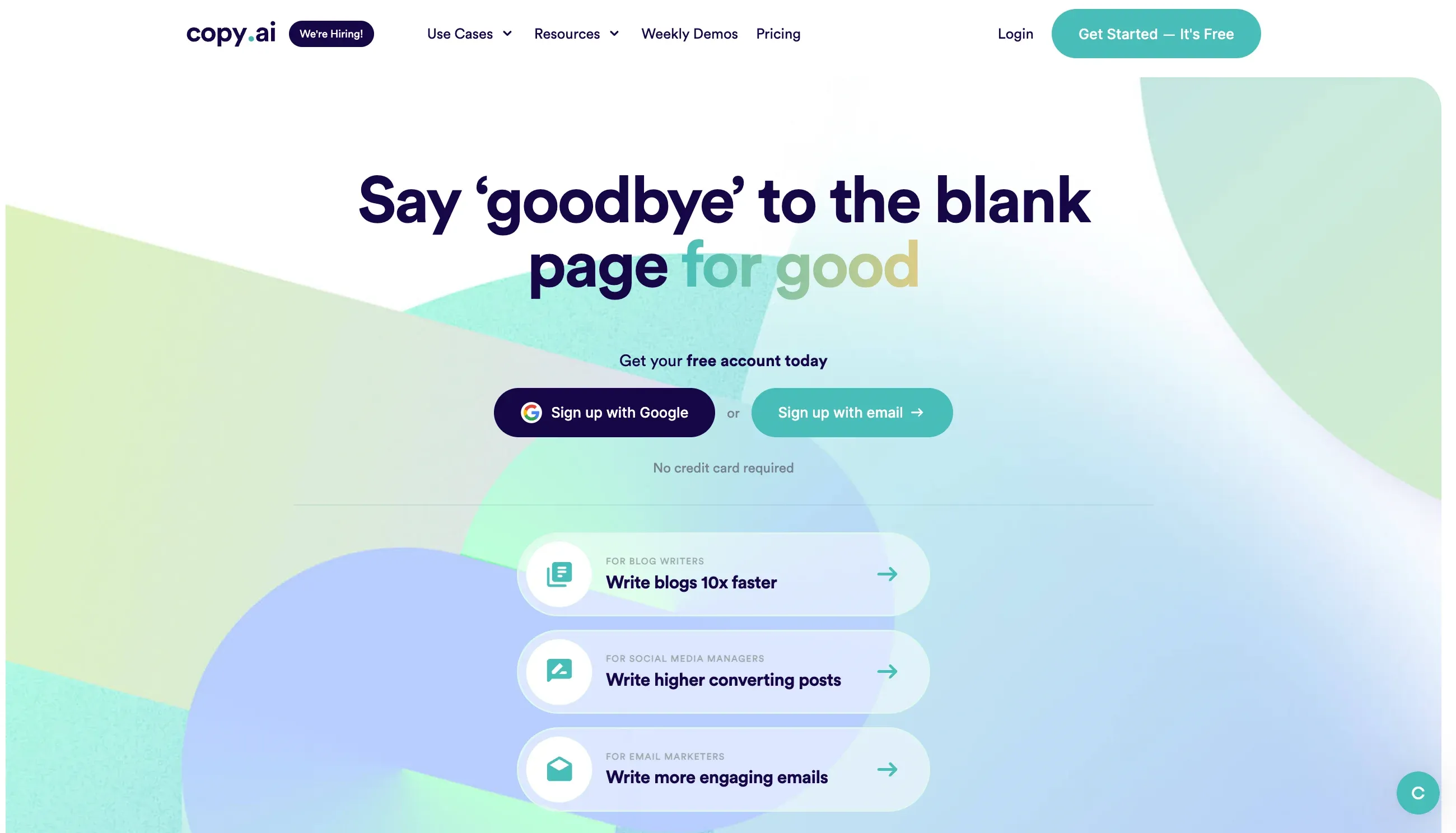
Generative AI tools can generate appropriate and creative content for blogs, social media accounts, and business websites.
These tools enable users to provide instructions on article tone and voice, input past written content, and generate content that resonates with the brand's audience.
4. Inbound and Outbound Marketing Communication Workflows
Generative AI solutions can automate the creation and delivery of contextualized emails and chat threads in inbound and outbound marketing campaigns.
This streamlines communication processes, improves workflow automation, and enhances customer relationship management.
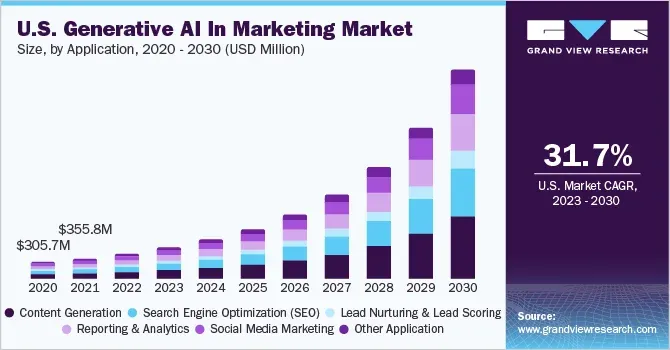
5. Graphic Design and Video Marketing
Generative AI use case capabilities encompass generating realistic graphics, animations, and audio for graphic design and video marketing projects.
Some generative AI vendors also offer voice synthesis and AI avatars, eliminating the need for actors, video equipment, or video editing expertise.
Suggested Reading:
6. Entertainment Media Generation
AI-generated imagery, animation, and audio are increasingly used in the entertainment industry to create movie graphics, music, and characters for virtual storytelling and virtual reality experiences.
Generative AI technology supplements existing scripts and creates interactive non-player characters (NPCs).
7. Performance Management and Coaching
Generative AI can be employed in business scenarios for coaching and performance management.
It can assist in call documentation and summarization, sentiment analysis, and providing feedback for employees.
Generative AI tools enhance performance reviews and support employees in improving their performance.
8. Business Performance Reporting and Data Analytics
Generative AI is becoming vital for business intelligence and performance reporting.
It can quickly summarize massive amounts of data, especially unstructured and qualitative data, enabling deeper insights.
The technology also explores data narratives, and contextualized AI explanations of datasets.
Generative AI is useful in business reporting by summarizing unstructured and qualitative data, enabling deeper insights. It also provides contextualized explanations of datasets, allowing businesses to better understand and make informed decisions based on data analysis.
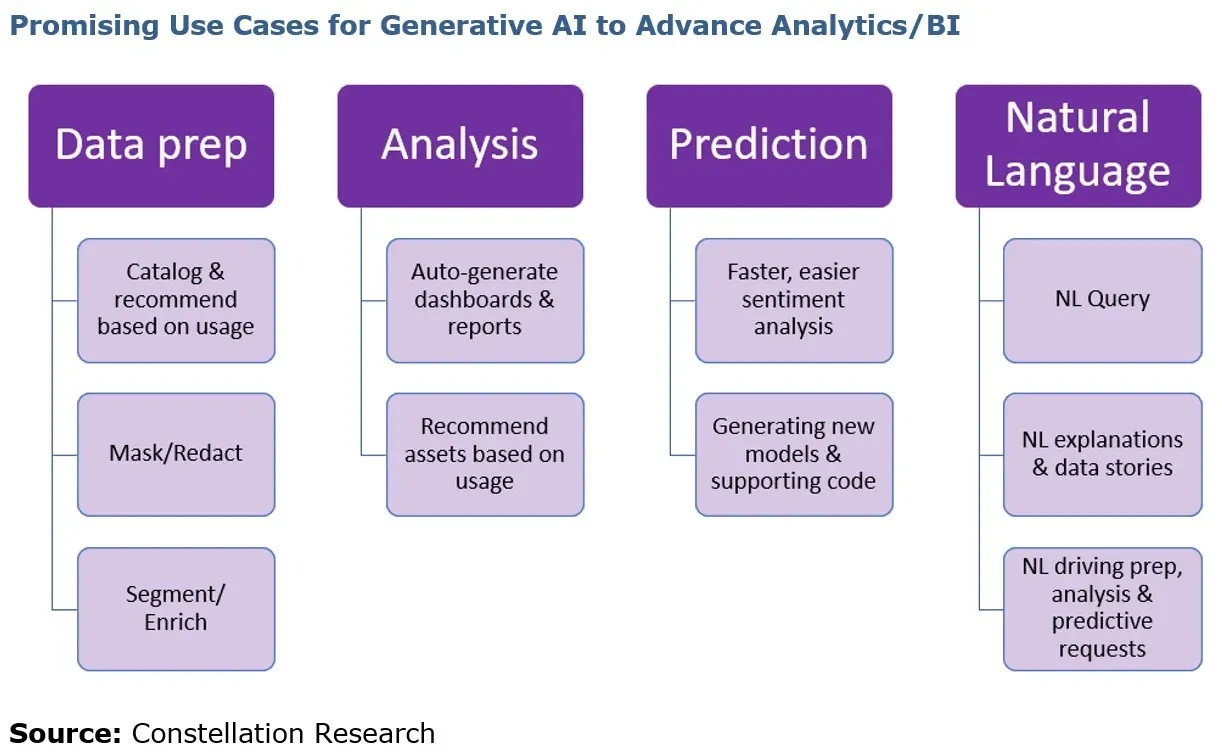
9. Customer Support and Customer Experience
Generative AI chatbots and virtual assistants are increasingly used for customer service, providing comprehensive and human-like responses without human support representatives.
They can handle customer inquiries efficiently and around the clock, enhancing the overall customer experience.
These use cases demonstrate the versatility and potential of generative AI in improving various business operations, enhancing productivity, and delivering innovative solutions across different industries.
10. Financial Analysis and Predictive Modeling
Generative AI can analyze financial data, identify trends, and generate predictive models for investment strategies, risk assessments, and portfolio management.
It assists in automating data interpretation and decision-making processes for financial institutions.
Suggested Reading:
11. Cybersecurity and Threat Detection
Generative AI tools can identify and simulate potential cybersecurity threats, helping businesses proactively detect vulnerabilities and develop robust security measures.
They can generate realistic attack scenarios, aiding in developing robust defense strategies.
12. Supply Chain Optimization
Generative AI can optimize supply chain operations, improving inventory management, demand forecasting, and logistics planning.
By analyzing historical data, generative AI models can generate accurate predictions, reducing costs and improving efficiency.
13. Personalized Recommendations
Generative AI algorithms can analyze user behavior and generate personalized recommendations for products or content.
This helps customer engagement, enhances user experience, and increases conversion rates for e-commerce platforms and streaming services.
14. Natural Language Generation (NLG)
Generative AI can generate human-like text by analyzing structured data sources.
This technology is used for automated report generation and personalized news articles, customer interactions, and chatbot conversations.
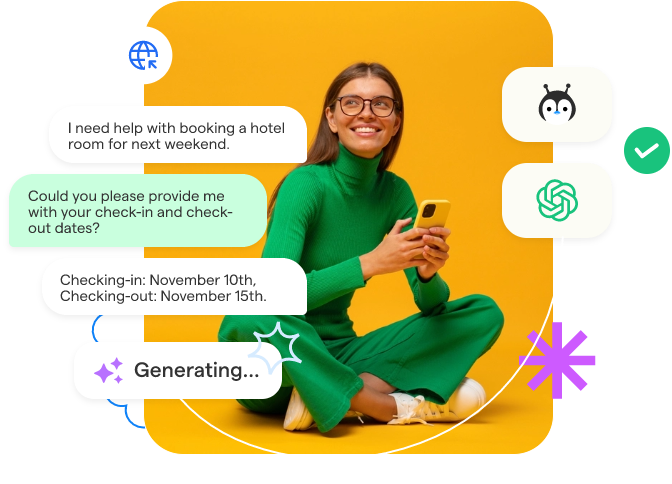
15. Virtual Design and Prototyping
Generative AI can assist in designing and prototyping products, generating alternative designs based on given specifications.
This accelerates the product development process, reduces costs associated with physical prototyping, and encourages innovation.
16. Fraud Detection
Generative AI can analyze large amounts of data to identify patterns associated with fraudulent activities.
This application assists financial institutions and e-commerce platforms reduce fraud and improve security measures.
17. Medical Research and Drug Discovery
Generative AI techniques are employed in medical research to generate synthetic data models for training algorithms.
This allows researchers to gain insights into complex diseases, predict patient outcomes, and accelerate drug discovery processes.
Suggested Reading:
Harnessing Creative Intelligence for Marketing Excellence
18. Energy Optimization
Generative AI optimizes energy consumption in various sectors.
It can analyze consumption patterns, identify areas of improvement, and generate recommendations for energy-saving measures, reducing ecological footprints and operational costs.
19. Human Resources and Talent Acquisition
Generative AI can streamline the recruitment process by generating candidate shortlists based on desired qualifications, experiences, and company culture fit.
It improves the efficiency of talent acquisition and enhances the quality of candidate selection.
20. Speech and Voice Analysis
Generative AI techniques can generate synthesized voices for virtual assistants, voiceovers, and personalized voice interfaces.
It enables businesses to create unique brand voices while enhancing speech recognition and natural language understanding capabilities.
21. Creative Writing and Storytelling
Generative AI tools can aid creative writing by generating character profiles, plot ideas, and storylines.
They can inspire and assist authors, screenwriters, and content creators, enhancing their storytelling capabilities.
Now that we have covered 21 creative ways to use generative AI, it's time to cover the benefits of generative AI.
Conversational AI and Generative AI
Conversational AI and Generative AI are closely related, as generative AI plays a key role in powering chatbots and other conversational interfaces.
Let's look at the relationship between these two AI technologies.
Conversational AI refers to AI technologies, like chatbots and voice assistants, that can engage in natural language conversations with humans. Generative AI, on the other hand, focuses on creating new and original content.
Generative AI plays an important role in Conversational AI, allowing chatbots and voice assistants to generate real-time, context-aware responses to user queries.
By generating new content, chatbots can adapt to different scenarios and provide effective solutions, particularly in customer service industries.
Generative AI also helps in natural language generation, creating personalized written content based on structured data sources. Overall, Generative AI enhances the versatility and adaptability of Conversational AI, making interactions more dynamic and responsive.
BotPenguin and Generative AI
BotPenguin is a conversational AI platform that incorporates the power of Generative AI to provide intelligent chatbot solutions.
Using Generative AI algorithms, BotPenguin can generate dynamic and contextually appropriate responses, enhancing the conversational experience for users. With its ability to understand user intent and generate personalized interactions, BotPenguin change the way of customer engagement, automates repetitive tasks, and delivers efficient and effective solutions.
By seamlessly blending conversational abilities with the intelligence of Generative AI, BotPenguin empowers businesses to provide exceptional customer service and drive meaningful interactions with their audience and on the platform of their choice:
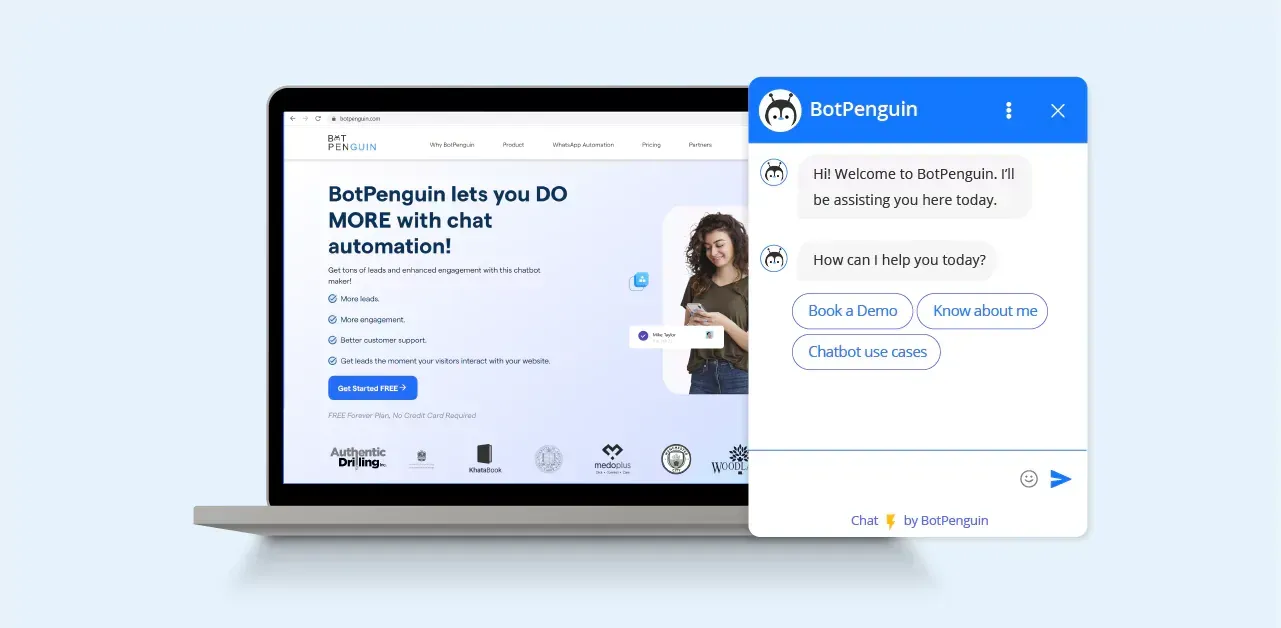
Final Thoughts
Generative AI is transforming businesses by automating repetitive tasks, scaling customization and personalization, and unleashing new levels of creativity.
Generative models provide valuable insights and optimize operations across industries by analyzing vast data.
Whether it's streamlining marketing workflows, enhancing customer support, or accelerating product development, generative AI boosts productivity while cutting costs. Its applications continue to evolve as the technology advances.
If you want to benefit from generative AI capabilities for your business, you should check out BotPenguin.
BotPenguin is a leading conversational AI platform that harnesses the power of generative AI to build intelligent chatbots.
BotPenguin chatbots understand users and generate personalized, dynamic responses. Businesses use BotPenguin to automate tasks, improve customer experiences, and engage audiences through natural conversations.
See how BotPenguin can help your business at https://botpenguin.com/.
Suggested Reading:
Frequently Asked Questions (FAQs)
What can be done with generative AI?
Generative AI can produce new content such as images, music, and text, as well as assist in tasks like data synthesis, creative design, and language translation.
Can generative AI be creative?
Yes, generative AI can be creative by generating unique and original outputs based on patterns and knowledge learned from training data.
How generative AI can be used in real life?
Generative AI has practical applications in various fields, including art, design, advertising, entertainment, healthcare, and data analysis.
What are the four commonly used generative AI applications?
Four commonly used generative AI applications are image synthesis, text generation, music composition, and video generation.


